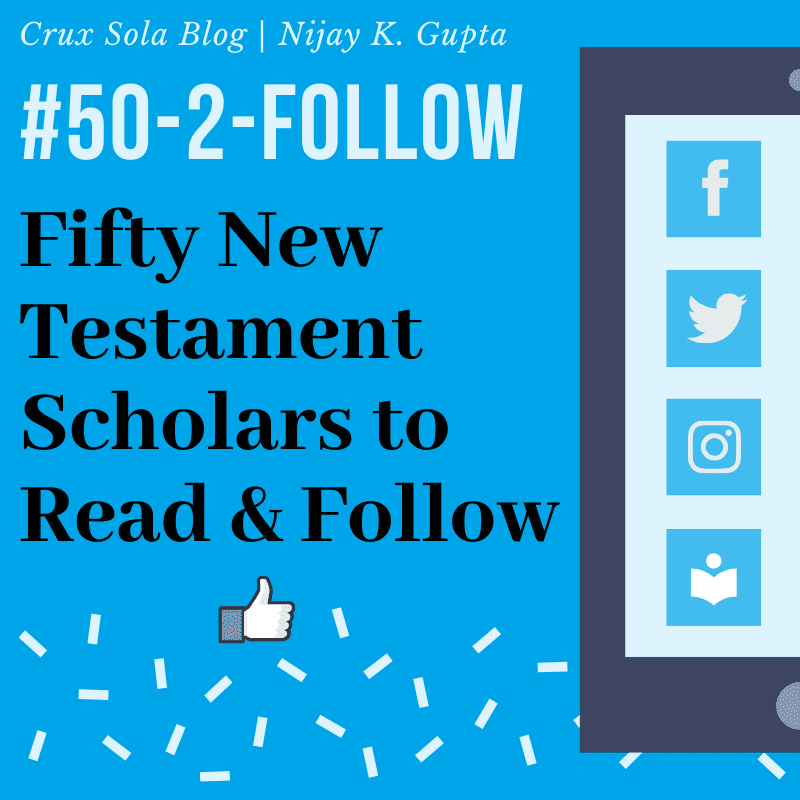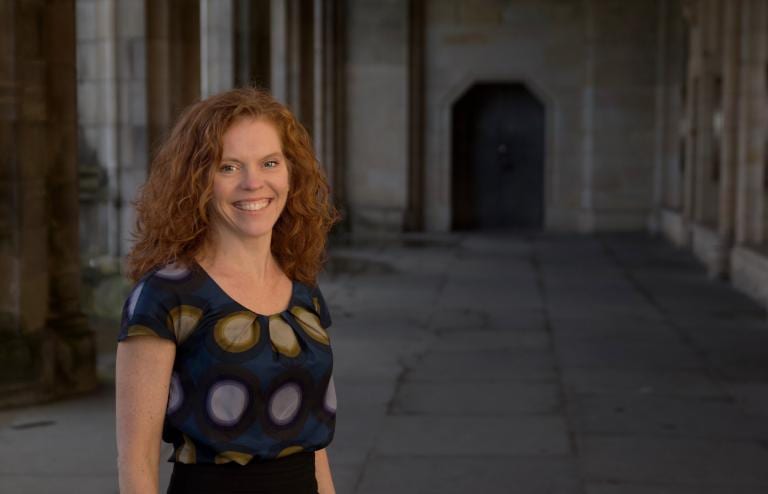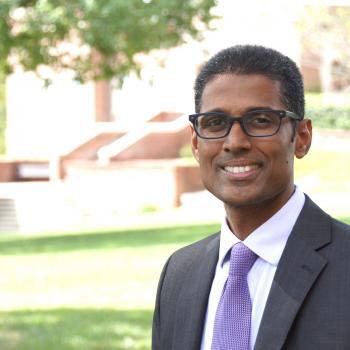This blog series spotlights 50 NT scholars and their research. The goal of this series is to introduce readers to a wider circle of scholarship than they have encountered before. The majority of people on this list are early or mid-career NT scholars who are doing great research and writing.

Introducing
Dr. Elizabeth E. Shively
Senior Lecturer in New Testament
University of St. Andrews

Explain why you love teaching and/or writing, and why it brings you vocational satisfaction.
Teaching makes me a lifelong student, and I love to learn. I find teaching the texts of the New Testament, especially the Gospels, particularly fulfilling because of their transformative power. My own experience as a student of the Bible shaped the kind of teacher I am. What I mean is, my best former teachers awakened me to new ideas about approaching the study of the Bible, thinking critically about what I believe, and engaging my world. So, I love it when my own students experience moments of discovery like those that were so powerful for me. I also find that there is a reciprocal relationship between my researching, writing and teaching. For me, the act of writing is the act of thinking, and I find it helpful to reverse that process by bringing some of what I’m currently writing about into the classroom, to think about it out loud. This forces me to communicate my ideas clearly and see faulty thinking, and helps my students learn along with me.
What is one “big idea,” emphasis, or theme in your scholarship that you hope impacts the way students and scholars read and understand the NT?
‘Context is king’. I admit I stole this emphasis from a former teacher, Scott Hafemann, who refers to the centrality of grammatical, historical, and literary contexts for determining the meaning of texts. I’ve come to extend the dimensions of this emphasis, though, because I’m convinced that investigating the complex interrelationship among a text’s contexts of creation, reception(s), and textual phenomena are crucial for understanding and responding to an author’s communicative intentions (I think we can and should ascribe intentions to authors).
Who is your academic hero and why?
My former teachers are my biggest academic heroes; I want to be just like them. Scott Hafemann, who taught me Greek and New Testament interpretation, modelled an infectious commitment to biblical languages, to careful exegesis, to his students, and, above all, to humble service. Also, my doctoral supervisor, Luke Timothy Johnson modelled how to read texts closely, and the sort of humour and humility that warned me not to take myself too seriously as a biblical scholar.
Name 3 NT or Biblical Studies academic books that were formative for you as a student.
Elizabeth Struthers Malbon, In the Company of Jesus: Characters in Mark’s Gospel
Rikki E. Watts, Isaiah’s New Exodus in Mark; WUNT 88 (Tübingen: Mohr Siebeck, 1997; Reprinted Grand Rapids, Baker Academic, 2000). 3)
Francis Watson, Text and Truth: Redefining Biblical Theology (Grand Rapids: Eerdmans, 1997).
Read Shively’s Books
Elizabeth E. Shively and Geert Van Oyen, eds. Communication, Pedagogy, and the Gospel of Mark. Society of Biblical Literature Resources for Biblical Studies 83. Atlanta: SBL Press, 2016.
“The Testaments of the Twelve Patriarchs and Mark 3:7-35: Apocalyptic and the Kingdom,” in B.C. Blackwell, J.K. Goodrich, and J. Matson, eds. Reading Mark in Context: Jesus and Second Temple Judaism (Grand Rapids: Zondervan, 2018).
Check out Shively’s Work Online
If you ran into me at SBL, and you didn’t want to talk about New Testament studies, what would you want to talk about?
Good food; good TV and films; good music; running and CrossFit.
What is a research/writing project you are working on right now that you are excited about?
I’m working on two writing projects, a monograph called The Invention of the Gospel: Genre, Meaning, and Identity for OUP, and the second edition of The Gospel of Mark (NIGTC commentary series) for Eerdmans. I’m excited about both projects because they allow me to integrate and amplify all the research and writing I’ve ever done. Of course, both are feeding into each other.

















